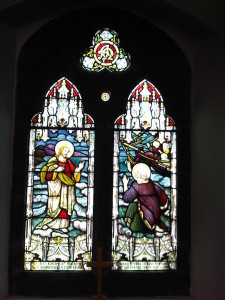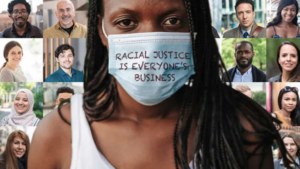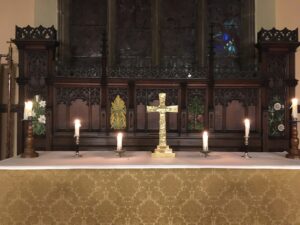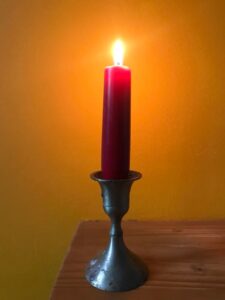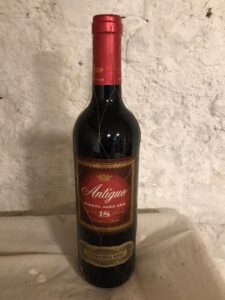
To watch this week's service on Youtube, please click here:
The Readings
2 Corinthians 3.12-4.2
Since, then, we have such a hope, we act with great boldness, not like Moses, who put a veil over his face to keep the people of Israel from gazing at the end of the glory that was being set aside. But their minds were hardened. Indeed, to this very day, when they hear the reading of the old covenant, that same veil is still there, since only in Christ is it set aside. Indeed, to this very day whenever Moses is read, a veil lies over their minds; but when one turns to the Lord, the veil is removed. Now the Lord is the Spirit, and where the Spirit of the Lord is, there is freedom. And all of us, with unveiled faces, seeing the glory of the Lord as though reflected in a mirror, are being transformed into the same image from one degree of glory to another; for this comes from the Lord, the Spirit.
Therefore, since it is by God’s mercy that we are engaged in this ministry, we do not lose heart. We have renounced the shameful things that one hides; we refuse to practise cunning or to falsify God’s word; but by the open statement of the truth we commend ourselves to the conscience of everyone in the sight of God.
Luke 9.28-43a
Now about eight days after these sayings Jesus took with him Peter and John and James, and went up on the mountain to pray. And while he was praying, the appearance of his face changed, and his clothes became dazzling white. Suddenly they saw two men, Moses and Elijah, talking to him. They appeared in glory and were speaking of his departure, which he was about to accomplish at Jerusalem. Now Peter and his companions were weighed down with sleep; but since they had stayed awake, they saw his glory and the two men who stood with him. Just as they were leaving him, Peter said to Jesus, ‘Master, it is good for us to be here; let us make three dwellings, one for you, one for Moses, and one for Elijah’—not knowing what he said. While he was saying this, a cloud came and overshadowed them; and they were terrified as they entered the cloud. Then from the cloud came a voice that said, ‘This is my Son, my Chosen; listen to him!’ When the voice had spoken, Jesus was found alone. And they kept silent and in those days told no one any of the things they had seen.
On the next day, when they had come down from the mountain, a great crowd met him. Just then a man from the crowd shouted, ‘Teacher, I beg you to look at my son; he is my only child. Suddenly a spirit seizes him, and all at once he shrieks. It throws him into convulsions until he foams at the mouth; it mauls him and will scarcely leave him. I begged your disciples to cast it out, but they could not.’ Jesus answered, ‘You faithless and perverse generation, how much longer must I be with you and bear with you? Bring your son here.’ While he was coming, the demon dashed him to the ground in convulsions. But Jesus rebuked the unclean spirit, healed the boy, and gave him back to his father. And all were astounded at the greatness of God.
While everyone was amazed at all that he was doing, he said to his disciples,
New Revised Standard Version Bible: Anglicized Edition, copyright © 1989, 1995 National Council of the Churches of Christ in the United States of America. Used by permission. All rights reserved worldwide.
The Sermon
By David C, Lay Reader
In the name of the Father, and of the Son, and of the Holy Spirit. Amen.
I’m going to begin this morning by reading the pastoral letter from the Archbishops of Canterbury and York on the current situation in Ukraine. Some printed copies are available at the back of church if you would like one.
It opens with a verse from scripture, John 14.27.
Peace I leave with you, my peace I give to you. I do not give to you as the world gives. Do not let your hearts be troubled and do not let them be afraid.
And it continues as follows:
Many of us will have troubled hearts as we watch with horror the attack by Russia on Ukraine. As we have already said, this attack is an act of evil, imperilling as it does the relative peace and security that Europe has enjoyed for so long. The attack by one nation on a free, democratic country has rightly provoked outrage, sanctions and condemnation.
We lament with the people of Ukraine, and we pray for the innocent, the frightened and those who have lost loved ones, homes, and family.
We continue to call for a ceasefire and the withdrawal of Russian forces as well as wide-ranging efforts to ensure peace, stability and security.
These events remind us powerfully that peace is precious and it is fragile. In Chapter 14 of John’s Gospel, Jesus speaks to his disciples at the Last Supper and he leaves them his peace. This is not a mere greeting, but rather something deep and abiding. This peace is something that only Jesus gives; for it is a gratuitous gift, a way of living, something to be received for the gift of peace is the gift of Jesus himself. That is why the Lord is able to offer reassurance to our hearts, why those who receive the gift of the peace of Jesus Christ at the deepest of levels should not be afraid.
Peace, therefore, is so much more than the absence of war. It is a gift, and it is also a decision, a gift that must be received. It is a choice we make that shapes the way we live well alongside each other. It characterises our relationship with God. It comes into being by seeking justice.
In these days of uncertainty and fear, we pray that each of us might again turn to the Lord and receive God’s gift of peace, work for God’s justice, know God’s reconciliation and love, and choose paths not of hatred or destruction, of violence or retribution, but God’s way of justice, mercy and peace.
As Christians, our response to a crisis must always be rooted in prayer. And so we invite you to join with us in praying most earnestly for an outpouring of the Spirit of God, that the world may once again choose peace, strengthening those international bodies that enable us to work and live together as one humanity inhabiting one world.
We pray for those in Ukraine who suffer grievously, for all who take decisions around the world, and for the people and leaders of Russia too.
In practical terms we invite you:
- to make this Sunday, 27 February, a day of prayer for peace;
- on Tuesday 1 March at 6pm (GMT) to pray with the Diocese in Europe for the chaplaincy in Kyiv and the churches that serve Ukraine; and
- to participate with the wider church in Pope Francis’s call to make Ash Wednesday, 2 March, a day of prayer and fasting for peace.
You can find liturgical resources on the Church of England website
However and whenever you pray, pray that the world may choose peace, and be assured of our prayers for you.
With every blessing, Archbishop Justin and Archbishop Stephen
We are using some of the resources mentioned by the Archbishops’ in our service this morning, including the reading from the letter of James, alongside the Gospel set for today the Transfiguration.
I spoke on the feast of the Baptism of Christ in January about three turning points in Jesus’ life, where he prays and receives divine revelation in response. They point to who Jesus is, his nature. The Transfiguration is the second of these. Jesus is praying, as he often is in Luke before major change. His face changes and clothes become dazzling white. Finally the voice of God is heard from heaven ‘This is my Son, my Chosen; listen to him!’ Jesus then turns his face towards Jerusalem and his coming passion. Jesus will lay down his life for the world.
Given how much of a mess humanity seems to make of the world, it would be easy to wonder why Jesus does this. In theory he could have opted to be the kind of Messiah that was expected. One who would fight the Roman Empire. One who would accept the temptation of the devil in Luke 4 verses 5 to 7.
Then the devil led him up and showed him in an instant all the kingdoms of the world. And the devil said to him, ‘To you I will give their glory and all this authority; for it has been given over to me, and I give it to anyone I please. If you, then, will worship me, it will all be yours.’
But that isn’t who Jesus is.
He doesn’t have those qualities James describes in his letter as earthly and devilish. He doesn’t have bitter envy or selfish ambition in his heart, nor is he boastful and false to the truth.
We have seen a lot of these qualities aired in the last week, and worse, and sadly we may see more over the coming months.
These are not Jesus’ qualities. His are the ones of peace, gentleness, mercy and good fruits mentioned in James. But also those of justice, righteousness and freedom from oppression.
These are the antidote to bitter envy and selfish ambition. We have seen these qualities on display in the last week as well.
It’s hard for us as individuals to effect change in the world for better. This applies to all sorts of different areas of life, social justice, climate change, war and conflict, the list of injustices is long.
We can pray, as the Archbishops’ have asked, and we can watch for where we can make little differences in the world. The kind word, the petition signed, the MP written to.
We will be able to help those suffering in Ukraine, even if we don’t know how just yet.
Amen.
The Prayers
Prepared by Lizzie Ilsley
God, you hold all people in the palm of your hand
We pray for the people of Ukraine in this time of intense shock, fear and uncertainty.
We pray for ordinary Russians who do not want this war. We hold before you the courageous people protesting against the invasion, risking detention.
Be present to the families of all people who have died, who can not grieve fully or give their loved one a dignified funeral.
We pray for all people – all over the world, who are displaced by conflict.
We pray for ourselves – that through prayer and action we can show compassion and solidarity with all your people, and strive for justice and peace.
Help us not to give up on peace.
Lord in your mercy
Hear our prayer.
God, whose love does not discriminate
We pray for church and all faith communities, here in Sheffield, in the UK and beyond.
We hold those who are working for collaboration between churches and faiths, who may have differing perspectives but who hold in common a desire to see your kingdom come – where the first is last and the last is first – where love triumphs over hate.
Help leaders to discern ways of realising and communicating what we might positively do to pursue justice and peace, including in our own churches.
Lord in your mercy
Hear our prayer.
God, who holds up the poor first
On poverty action Sunday, we hold in our prayers those, particularly in this community, who are, right now forced to make impossible decisions – whether to buy food or heat their homes.
We pray for the children in this community who are going to school without eating breakfast, or going through a weekend and holidays without a hot meal.
May we embrace righteous anger for ambivalence towards and acceptance of poverty. May we find the courage to name and challenge the systems and policies that perpetuate it.
Lord in your mercy
Hear our prayer
We hold before you all who are unwell at this time, and those who have died.
Be present to all those who are grieving and lamenting.
We pray for all those we love, but no longer see.
Lord in your mercy
Hear our prayer.
We end our prayers today with a prayer from the Corrymeela community:
God who sees the weakness
in acts of naked aggression;
God who feels the fear
in moments of acute helplessness:
cure this warring madness,
and shield all who fall in harm’s way.
Leach the poison from the mind
that thinks strength is shown
in a bullying force.
And may an equal strength in solidarity
give resolve to those
whose aim is to protect, and respect,
not just the ones we call our own,
but all with whom we can share
a better, more peaceful world.
Amen.


